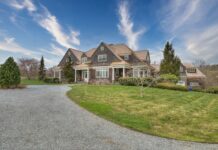
Attorney Peter E. Garvey practices in Rhode Island, Massachusetts and Connecticut and represents insurance companies, as well as local, national and international corporations. A partner in Higgins, Cavanagh & Cooney’s litigation department, his primary practice areas include premises liability, product liability, negligence and general insurance defense. He recently responded to questions posed by The Providence Business News on property liability issues.
PBN: How would you define premises liability?
GARVEY: Generally, a landowner has the duty to exercise reasonable care for the safety of persons reasonably expected to be on the premises. That duty includes the obligation to protect against the risks of a dangerous condition existing on the premises, provided the landowner knows of, or by the exercise of reasonable care would have discovered, the dangerous condition.
PBN: What does negligence look like in these liability claims and do most building owners do enough to protect themselves from lawsuits?
GARVEY: Negligence can take the form of the most obvious situation – where a customer slips on a foreign substance, or snow and ice, that was left unattended for a sufficient period of time such that the landowner is deemed to have had knowledge of that condition.
Liability most often turns on whether or not the landowner knew or should have known of a dangerous condition on the premises and failed to exercise due care to remove the condition after a reasonable time of having discovered it.
Whether a landowner should have known of a dangerous condition varies depending on the circumstances. However, several variables include: the nature of the business; the size of the business; the number of customers visiting the premises; the location of the dangerous condition; and the opportunity of the landowner to see and observe the dangerous condition.
Whether a landowner does enough to protect itself usually depends on whether they have in place a systematic maintenance policy (though not necessarily written), which requires routine and documented inspections.
PBN: Are slip-and-fall cases the most common of liability claims? Why is it important for the building owner to have an incident report completed quickly and accurately? Who fills that out?
GARVEY: Yes, slip-and-fall cases are the most common of premises liability claims. It is important for the landowner to have an incident report completed quickly and accurately so as to memorialize the condition complained of, complaints of injury, surrounding conditions, and the names of witnesses. The incident report should be completed by an employee with managerial responsibility. It should include the statements of independent witnesses and employees. It should not include opinions, assumptions or speculation on what could have been done to avoid the incident or injury. It is important to remember that the typical incident report will ultimately be discoverable by the claimant’s attorney if litigation ensues. If an incident is reported and not memorialized in an incident report, a negative inference may be drawn against the landowner if litigation ensues.
PBN: Have most owners installed surveillance video in such a way as to guard against false or inaccurate injury claims? Is this something that would pay off for companies that may be on the fence about upgrading their surveillance?
GARVEY: Yes, the installation of surveillance equipment is a proven investment and helpful in exposing fraudulent claims. It is also helpful in the evaluation and settlement of legitimate claims. Most of the large retail chains already have installed such equipment. Smaller businesses are faced with the practicalities of having to weigh the cost and benefits. A small-business owner should also explore whether the installation of surveillance cameras will lower his or her insurance premiums.
PBN: What advice do you give property owners about winter care, and avoiding falls and other common injury claims?
GARVEY: If the business contracts with others to do plowing, sanding, salting and/or shoveling, there should be a written contract in place whereby the vendor agrees to defend and indemnify the owner. The vendor should be required to be insured and to provide a certificate of insurance to the business owner. Well-lighted entrances and parking areas and the availability of salt/sand/ice melt are necessary. The owner must be able to show that there is a routine in place that includes reasonable steps to provide a safe area for customers and others reasonably expected to be on the premises.












